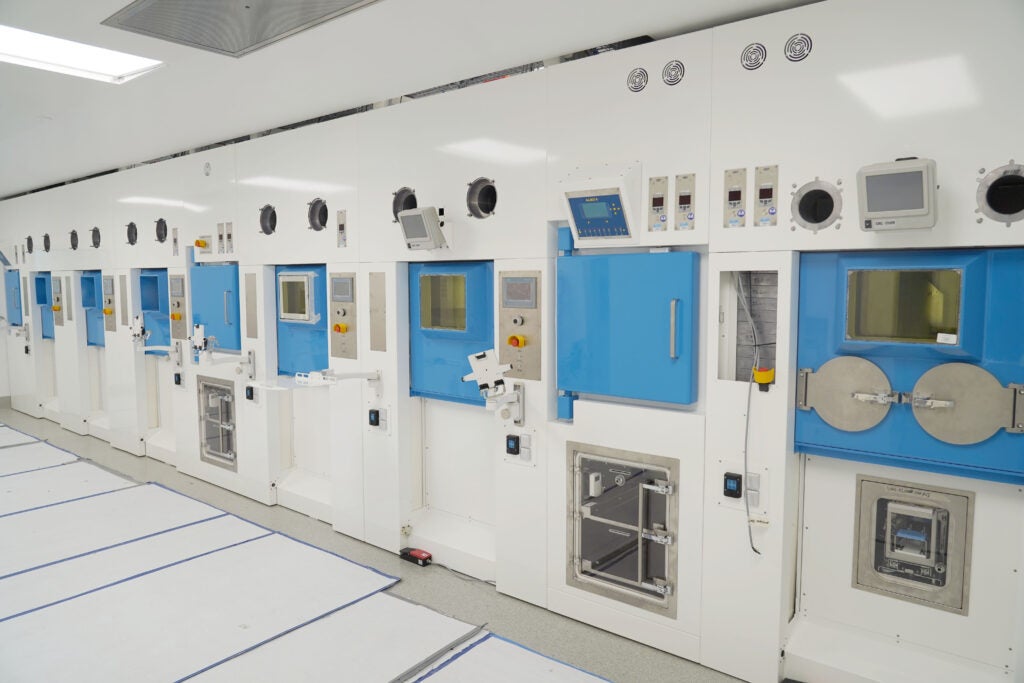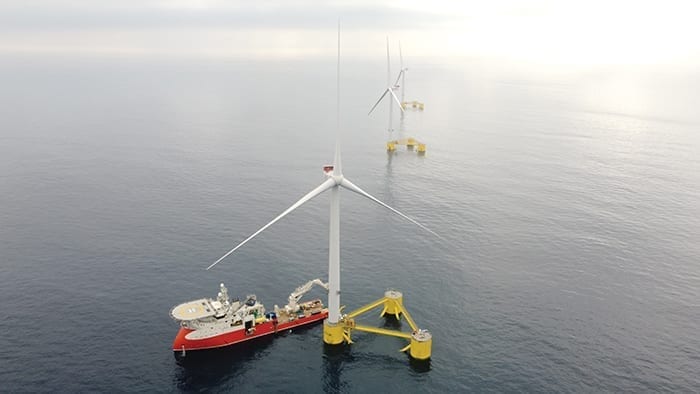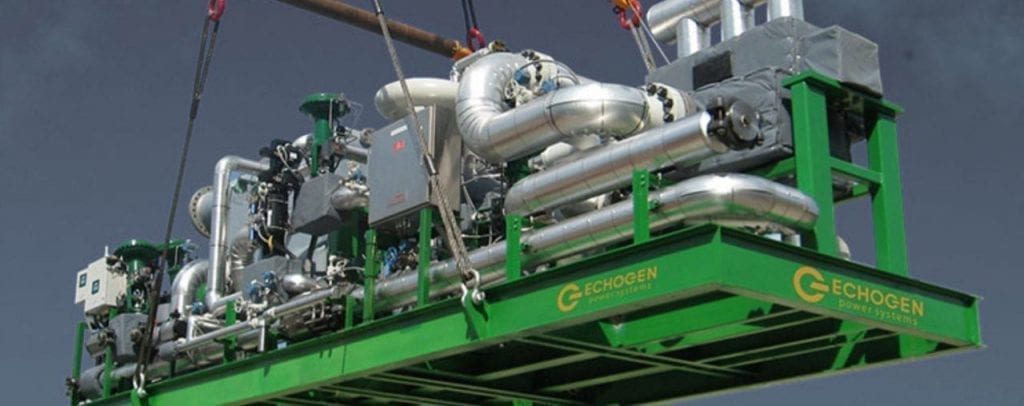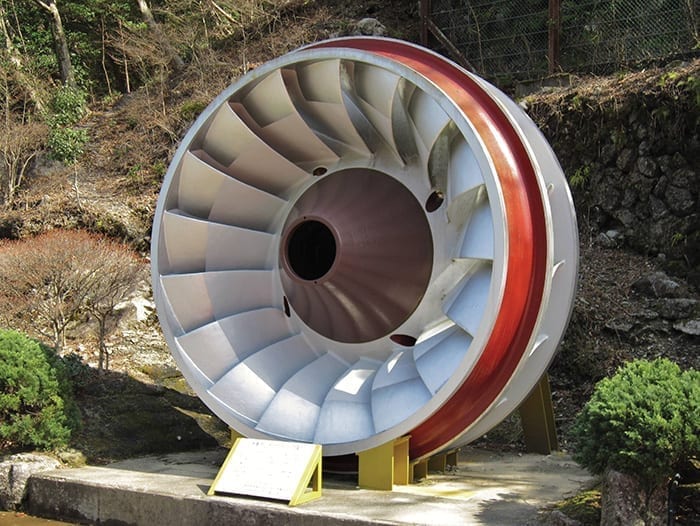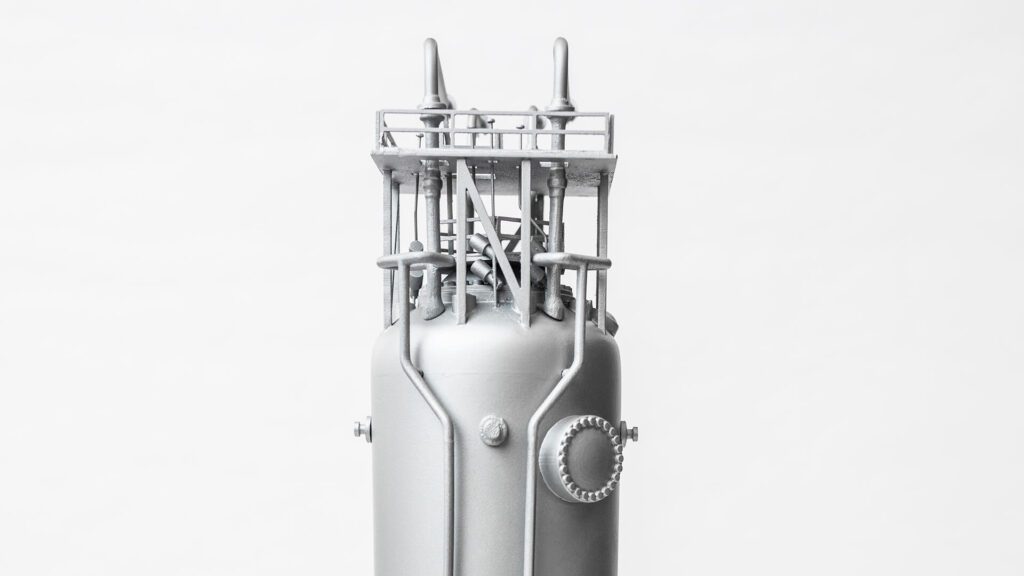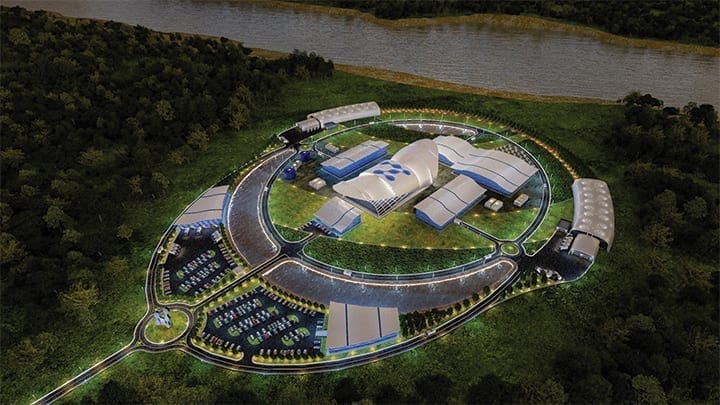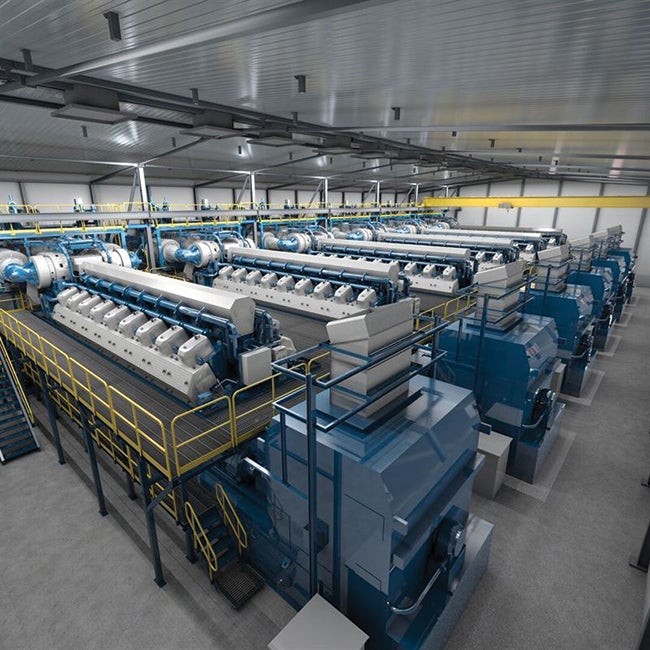Poland’s push for nuclear power could include repurposing of coal-fired power plants with small modular reactor (SMR) technology from NuScale Power. NuScale on Sept. 23 announced it had signed a memorandum of understanding (MOU) with two Polish companies, KGHM Polska Miedź S.A. (KGHM), and Piela Business Engineering (PBE), to explore how NuScale’s technology could be used to provide electricity and heat for KGHM’s industrial processes along with cleaner power for the country.
NuScale then later Thursday said it had signed an MOU with Oklahoma-based energy company Getka Group (Getka) and Poland’s UNIMOT S.A. (UNIMOT) that also looks at deploying NuScale’s SMRs, again to repurpose Polish coal-fired power plants. Getka is an integrated energy company providing construction, and delivery of petroleum, refined products, and alternative energy. UNIMOT is a multi-energy capital group that offers its wholesale and retail customers fuel products, gas and electricity, including renewable energy.
Poland, which relies heavily on coal, was the only member of the European Union not to commit to climate neutrality by 2050 when the EU set the target in 2019. But Polish officials have said they plan to phase out coal-fired power, and increase the use of nuclear power and renewable energy resources.
Thursday’s announcements came the same day as several companies, including a Polish chemicals manufacturer along with GE Hitachi Nuclear Energy (GEH), announced an MOU to evaluate the potential of establishing a uranium fuel supply chain in Canada that would be capable of servicing a potential fleet of GEH’s BWRX-300 SMRs in Poland.
The moves come as Poland continues to explore ways to produce cleaner energy in a country long dependent on coal-fired generation for electricity. The country earlier this year said it would close the 12-unit, 5,100-MW Belchatow Power Plant, Europe’s largest coal-fired power generation facility, in phases from 2030 to 2036. Polish officials in April announced a plan to separate coal assets from state-controlled utilities, and transfer them to a state-owned National Energy Security Agency, saying it would allow more access for power companies to find financing for future investments in natural gas and renewable energy projects.
“The changes in the climate are forcing us to take decisive actions. We are already feeling the impact, including in a financial sense, connected among others with the increases in energy prices,” said Marcin Chludziński, president of the management board of KGHM Polska Miedź S.A., on Thursday. “The construction of small nuclear reactors by 2030 is a solid declaration and an element [for] our energy transformation. We are pioneers in Poland, as we expect that the first of our nuclear power plants will come online in 2029.
“SMR technology will not only help us to protect the environment but will also substantially reduce the costs of operating our business,” Chludziński said. “This is one of the recently-announced initiatives aimed at growing the company, and we plan to generate power commercially in order to assist in the green transformation of Poland and bring down costs for the average household.”
“This project aligns with our commitment to decarbonize and diversify Poland’s energy infrastructure,” said Dariusz Cichocki, chairman and CEO of Getka Group. “Through our ongoing partnership with UNIMOT, we are pleased to partner with NuScale to bring innovative solutions to market in Central Europe.”
Replacing Coal with Nuclear Power
KGHM in a statement Thursday said it would develop nuclear technology by replacing existing coal-fired power generation with SMRs, with support from NuScale, which is working on a variety of SMR-related projects worldwide, including for green hydrogen production and marine deployment. KGHM said the agreement involves development and construction of at least four SMRs, with the option of up to 12, for total installed generation capacity of about 1,000 MW. KGHM said completion of the project is expected by the end of 2030. KGHM earlier this year had said it would focus more on greener energy sources like small nuclear reactors, hydrogen, or offshore wind projects.
KGHM is a mining company that produces copper and silver, and is known for research and development of new systems for the mining of deep underground copper deposits and more-effective technologies for processing and production of final materials. PBE is a consultancy that advises companies about business engineering.
“NuScale is thrilled to partner with KGHM and PBE on the potential deployment of NuScale Power plants in Poland,” said John Hopkins, chairman and CEO of NuScale Power, on Thursday. “The retirement of aging coal-fired power plants is leading to changes in power generation, infrastructure needs, and workforce opportunity. NuScale’s SMR technology is an ideal flexible clean energy solution to repurpose retiring coal-fueled power plants and most importantly, retain and retrain the skilled power plant workforce already in place in these Polish communities.”
Hopkins said the partnership with Getka and UNIMOT “demonstrates the versatility and value of NuScale’s SMR technology for a variety of applications. NuScale’s SMRs are an ideal clean, reliable, and affordable energy solution to repurpose retiring coal-fueled power plants across Poland.”
Portland, Oregon-based NuScale in August 2020 became the first SMR technology to receive design approval from the U.S. Nuclear Regulatory Commission (NRC). The NRC in July of this year published a proposed rule that would certify NuScale’s design, an important step for the construction and deployment of the technology.
Lining Up Investors
NuScale has been lining up investors and equipment suppliers for its technology as it moves toward commercialization of its SMR. The company in July 2021 announced that Samsung C&T Corp. committed to make an equity investment in NuScale to support deployment of its SMR. In conjunction with the investment, Samsung C&T and NuScale’s lead engineering, construction and procurement partner, Fluor Corp., are developing a business collaboration agreement to expand capabilities available for future deployment of NuScale projects.
Se Chul Oh, Samsung C&T’s Engineering & Construction Group president and CEO, at the time said, “Samsung C&T is delighted to invest in and explore global carbon-free power opportunities together with NuScale Power and Fluor Corporation, leading companies in the SMR nuclear business. SMR technology is next-generation with eco-friendly energy and this agreement is a crucial step to Samsung C&T to achieve future substantial growth.”
Samsung C&T has said it will draw upon its nuclear construction experience with the Barakah nuclear power plant in the United Arab Emirates, and South Korea’s Uljin facility, as it works on nuclear power projects.
NuScale in May of this year announced that it had finalized an investment agreement with IHI, a Japan-based comprehensive heavy-industry engineering and manufacturing company, in which IHI said it would invest in NuScale and become a strategic supplier for NuScale nuclear facilities. IHI also would be a preferred supplier of certain manufactured components for NuScale.
“Strategic partnership with an innovative SMR technology developer such as NuScale is a great opportunity for us,” said Hiroshi Ide, president and CEO of IHI. “IHI wants to support the move toward a carbon-neutral economy, and NuScale’s technology is safe, clean, reliable and closest to commercialization among its competitors. IHI can support rapid deployment of NuScale’s technology by leveraging IHI’s extensive engineering and manufacturing experience in the nuclear industry.”
Uranium Supply Chain
Synthos Green Energy (SGE), part of Synthos, a manufacturer of synthetic rubber and one of the biggest producers of chemical raw materials in Poland, in 2019 joined with GEH in an agreement to collaborate on potential deployment applications for the BWRX-300 model SMR in Poland. The companies signed a strategic agreement last year to further advance their cooperation. Those two on Thursday announced they have joined with Cameco, a uranium fuel supplier, and GEH SMR Technologies Canada to look at building the fuel supply chain for an SMR fleet.

“We look forward to working with Cameco and GEH in understanding the uranium requirements for a fleet of BWRX-300s in Poland and the support that Canada has to offer,” said Rafał Kasprów, president of the board of SGE. “In addition to this MOU, SGE is working closely with GEH to identify supply chain opportunities in Poland that complement the export capabilities being developed in Canada for the BWRX-300, which could enable us to successfully deliver carbon-free electricity to the grid.”
“GEH is honored to be working with Cameco and Synthos Green Energy to deploy the BWRX-300,” said Jay Wileman, president and CEO of GEH. “Through our collaboration we look forward to the opportunity to bring carbon-free energy generation to Poland and support the creation of valuable uranium supply jobs in Canada.”
BWRX-300
The BWRX-300 is a 300-MWe water-cooled, natural circulation SMR with passive safety systems that leverages the design and licensing basis of GEH’s U.S. NRC-certified ESBWR. GEH has said the technology’s design means the BWRX-300 will require significantly less capital cost per MW when compared to other SMR designs.
GEH in a news release Thursday said that by “incorporating proven components and supply chain expertise, GEH believes the BWRX-300 can become the lowest-risk, most cost-competitive and quickest to market SMR.”
“We believe nuclear energy will play a major role in helping countries and companies around the world achieve their net-zero emission targets,” said Cameco president and CEO Tim Gitzel. “This MOU is a great example of the kind of innovative solutions businesses like Synthos Green Energy are exploring and how SMRs could contribute to industry-driven efforts to decarbonize.”
Other Polish companies also are looking at nuclear power. Poland’s biggest refiner, PKN Orlen PKN.WA, in June signed a cooperation agreement with Synthos to advance small nuclear projects. Michal Solowow, who leads Synthos, and Zygmunt Solorz, the principal owner of Cyfrowy Polsat SA, a major Polish media and telecommunications company, in August said they jointly would support construction of four to six SMRs, each with 300 MW of generation capacity, at the site of lignite-fired power plant in Patnow operated by one of Solorz’s companies. That plant is scheduled to close by 2030.
“With the future energy sector, design modular energy sources will play an exceptionally important role,” said Piotr Piela, founder and managing partner of PBE, which has been working since 2009 to develop nuclear power in Poland. “This is why the SMR, which is not competitive but truly complementary to big nuclear reactors, is not only a crucial component fitting energy transformation of Poland and many other fossil fuel-dependent European Union countries, but also considered the ‘technology of common interest’ essential to successfully implement the Pan European Green Deal.”
—Darrell Proctor is a senior associate editor for POWER (@POWERmagazine).



